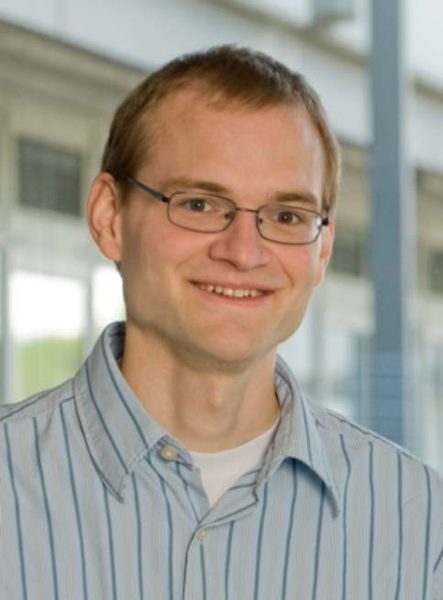Seminar: "Control and functions of sleep" Dr. Henrik Bringmann

Date
Location
Description
Speaker: Dr. Henrik Bringmann, Sleep and Wake, Max Planck Institution for Biophysical Chemistry
Title: "Control and functions of sleep"
Abstract
Sleep is a behavior that affects the physiology of the entire organism. It is essential and likely serves many functions from higher brain functions to basic cell biological functions including learning and memory, development, and regeneration. However, little is known about how sleep is controlled and how it exerts its functions. Central to the control of sleep are sleep-active sleep-promoting neurons that are active at the onset of sleep and that actively induce sleep through inhibitory transmitters such as GABA and neuropeptides. Caenorhabditis elegans is one of the most simple organisms that sleeps. Sleep is induced by just one single sleep-active neuron called RIS. C. elegans is amenable to molecular dissection and genetic screening identified conserved sleep regulatory genes. To study its functions, sleep can be ablated and the phenotypes caused by sleep loss can be studied. Because of its simplicity, the molecular basis of sleep regulation and functions should be straightforward to solve in the worm. Because sleep genes are conserved in mammals, conditional KOs can be made in mouse models, in order to study the more complex regulation of sleep in mammals, and to understand human sleep disorders.
Biography
Henrik Bringmann studied Biology in Goettingen and Heidelberg and did his Diploma in the lab of Thomas Surrey at the EMBL on the kinetics of motor proteins. He did a PhD with Tony Hyman at the MPICBG on the positioning of the cytokinesis cleavage furrow, which he finished in 2007. It followed a postoc at the MRC Laboratory of Molecular Biology in Cambridge, UK, in the lab of Bill Schafer to get familiar with Caenorhabditis elegans neurobiology. Henrik returned to Germany to become a Max Planck Research Group Leader at the Max Planck Institute for biophysical Chemistry in Goettingen in 2009. His lab has been working on the functions and regulation of sleep using C. elegans as a system. The group is currently translating the finding from the round worm to mouse models. Henrik has been teaching at Goettingen University and received several awards including the Otto Hahn Medal of the Max Planck Society and an ERC Grant.
Subscribe to the OIST Calendar: Right-click to download, then open in your calendar application.



